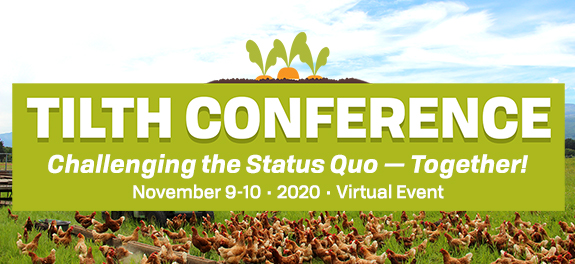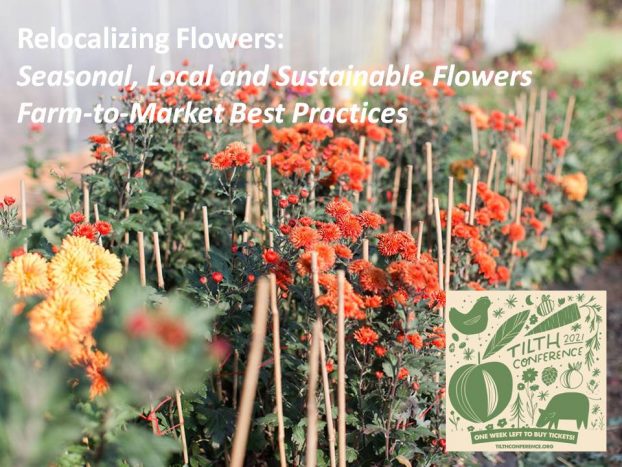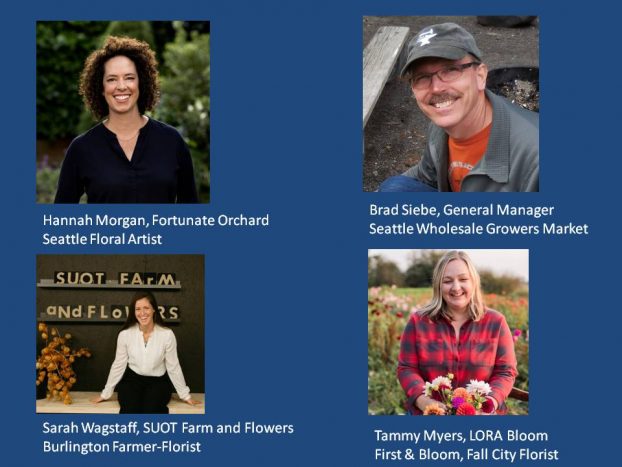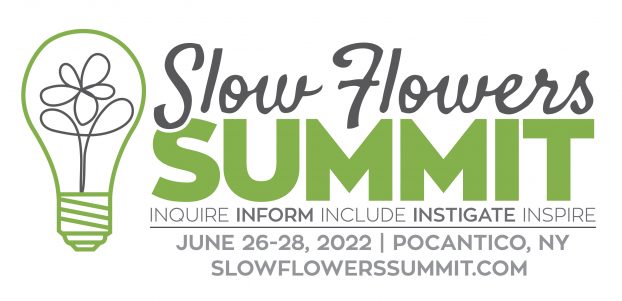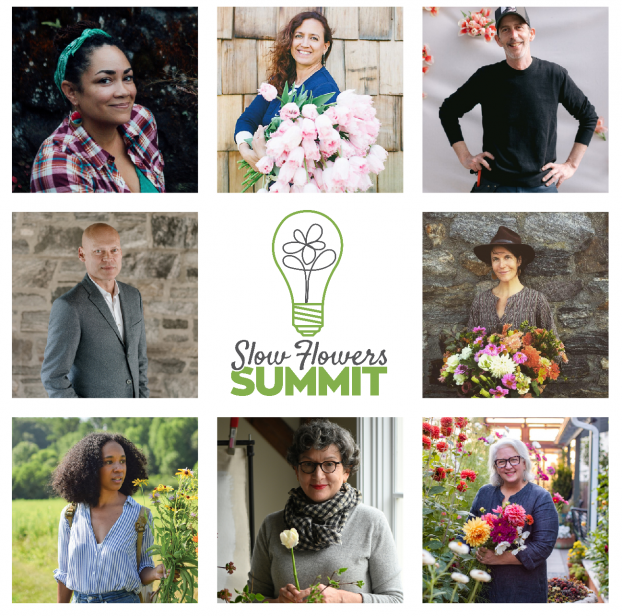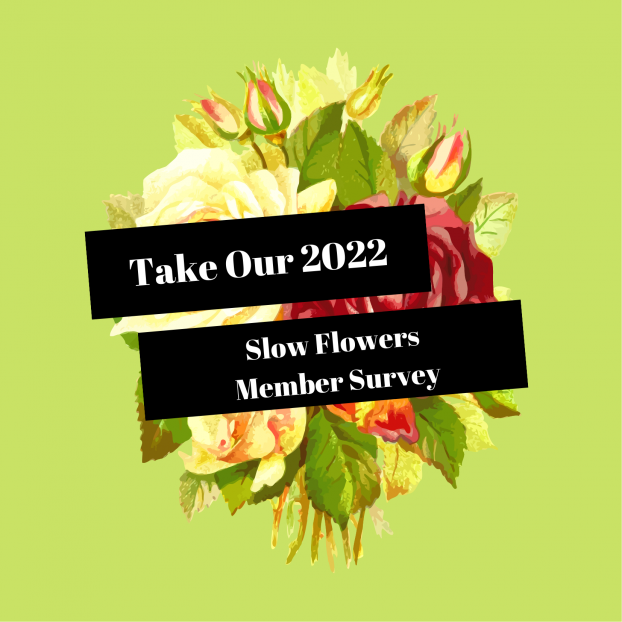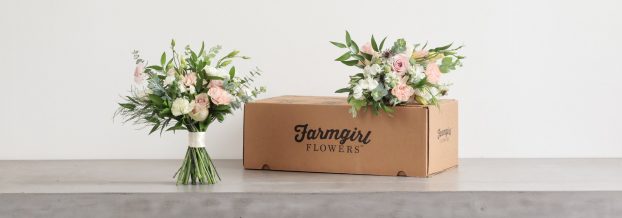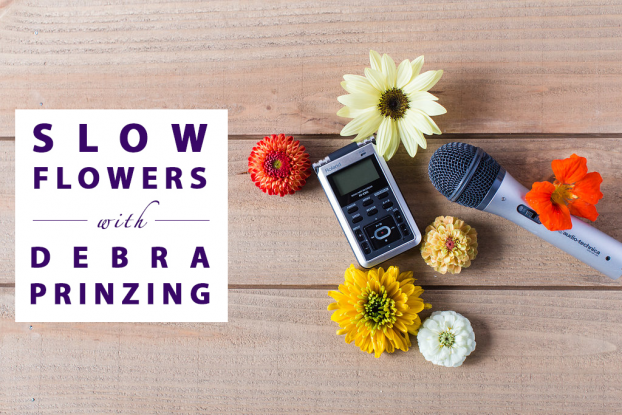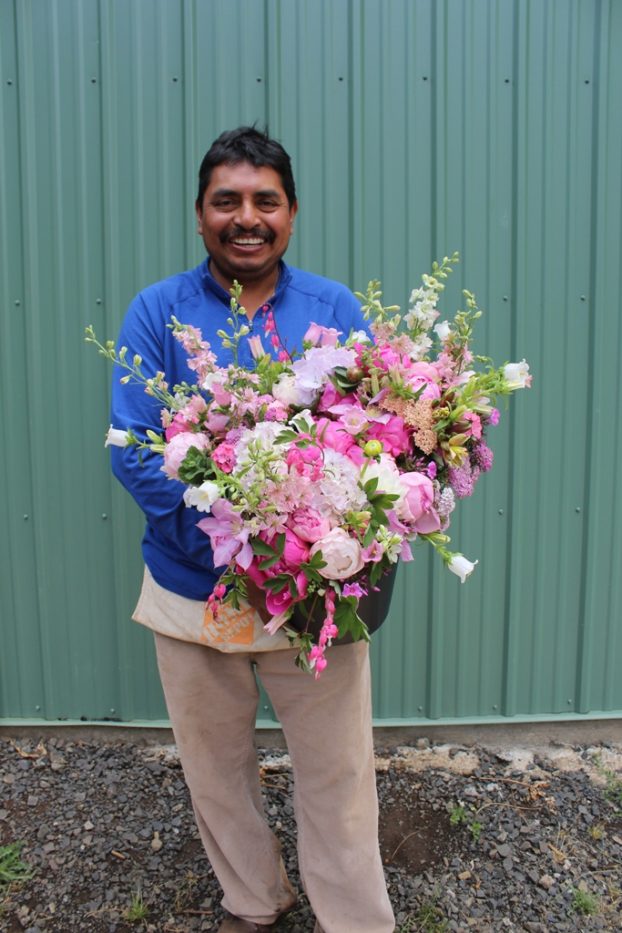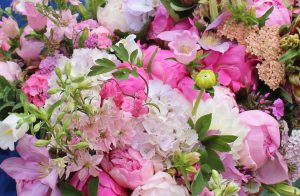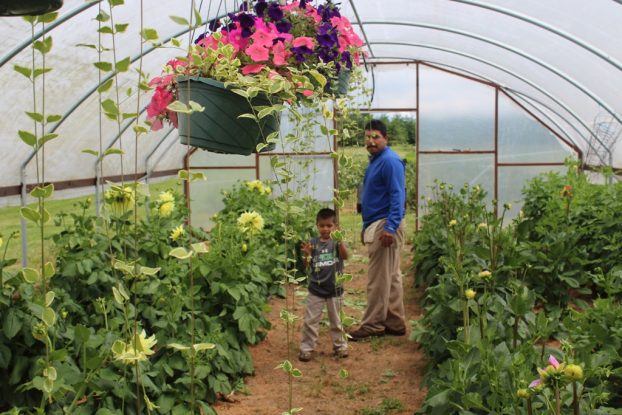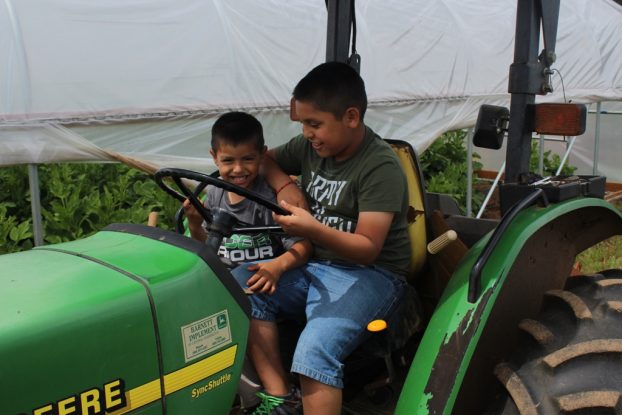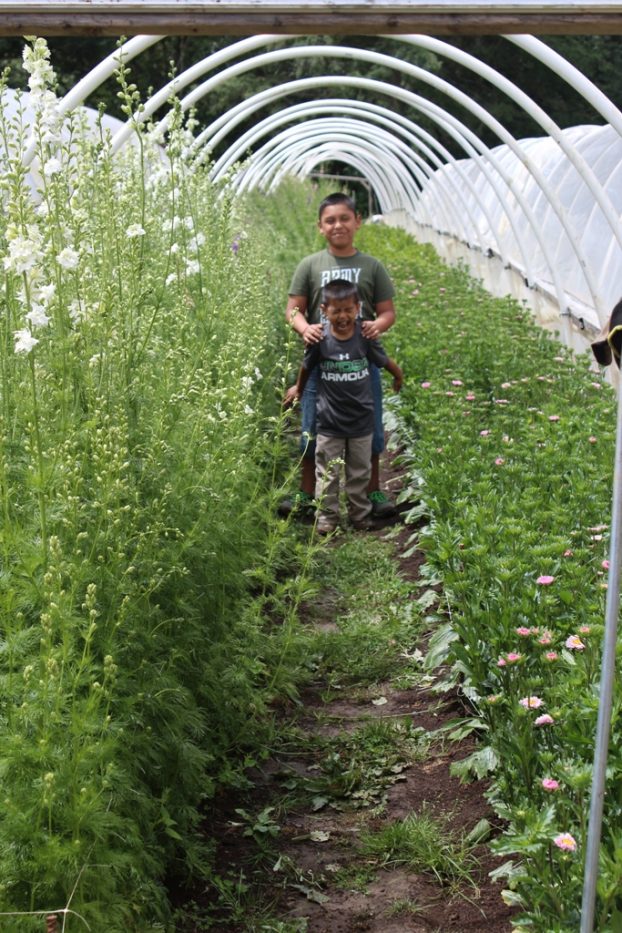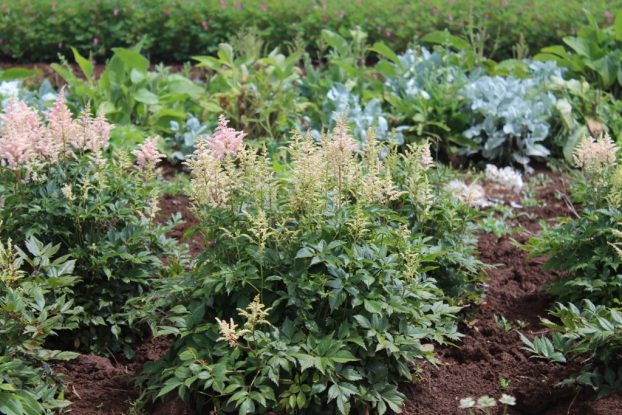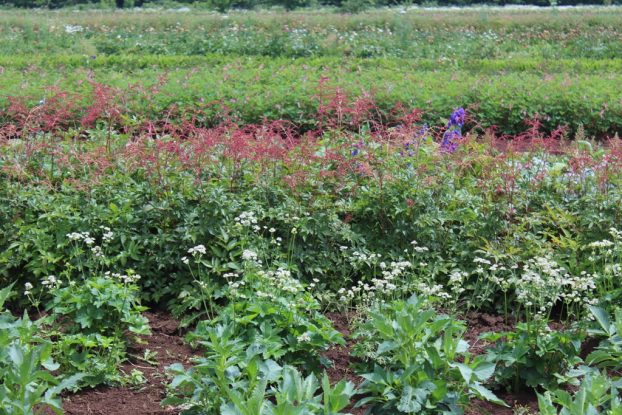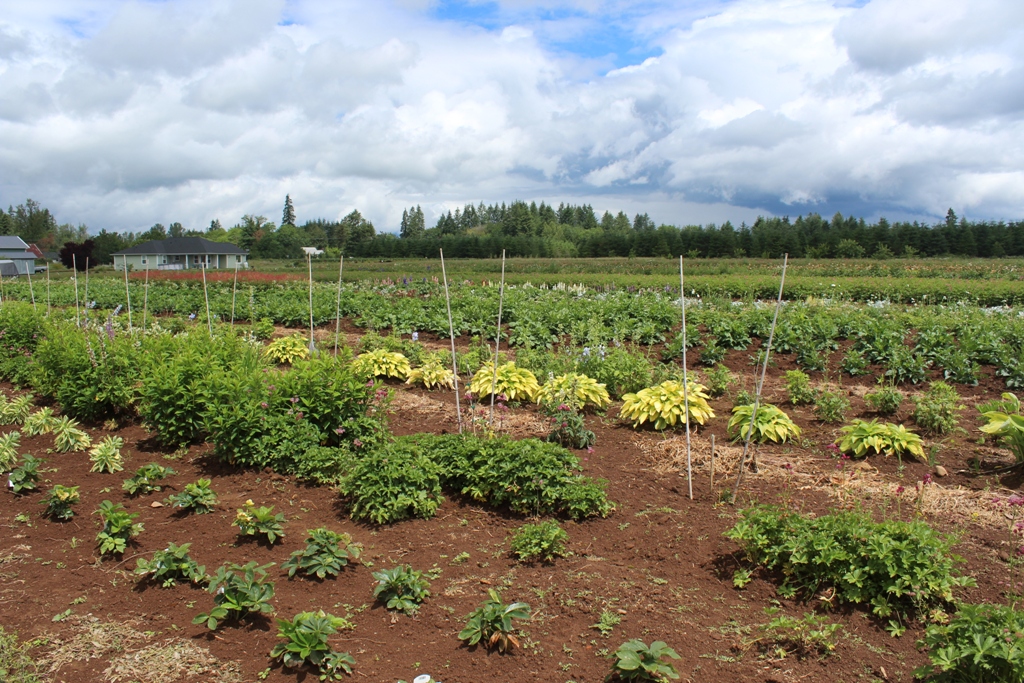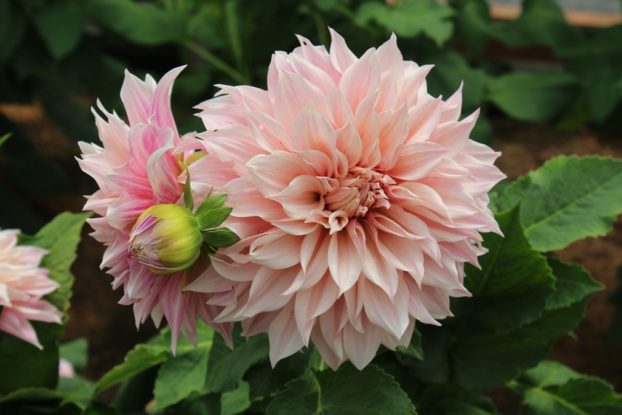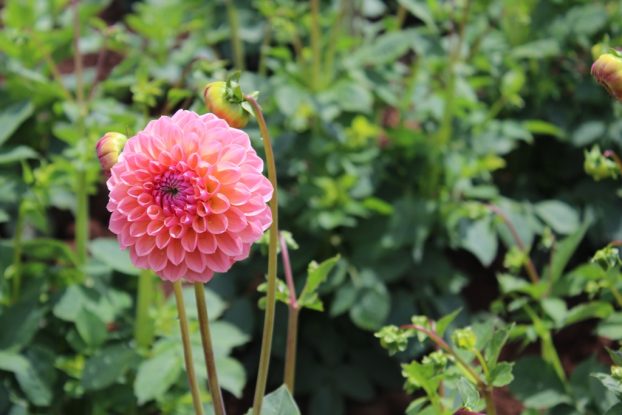Podcast: Play in new window | Download
Subscribe: Apple Podcasts | Podcast Index | RSS | More
We have just recognized Earth Day and the Slow Flowers Podcast focused on a non-green topic: Funeral Flowers.
This episode was inspired by two Slow Flowers members in the Seattle area who have been researching ways to infuse sustainability into sympathy flowers.
I’ve invited Lori Poliski of Flori LLC, and Tammy Myers of LORA Bloom and First and Bloom to share their experience, research, and future plans on this topic.
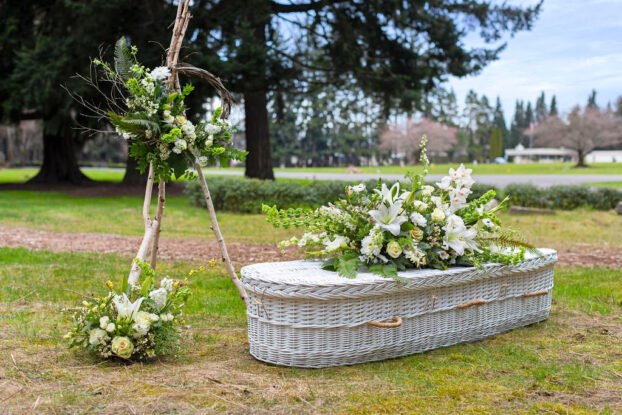
Just for context, based on funeral industry statistics, if half of the funerals in the US annually have traditional funeral flowers, Lori and Tammy estimate that up to 1.2 million plastic and floral foam saddle caskets, wreath forms and cages that end up in the landfill, every year.
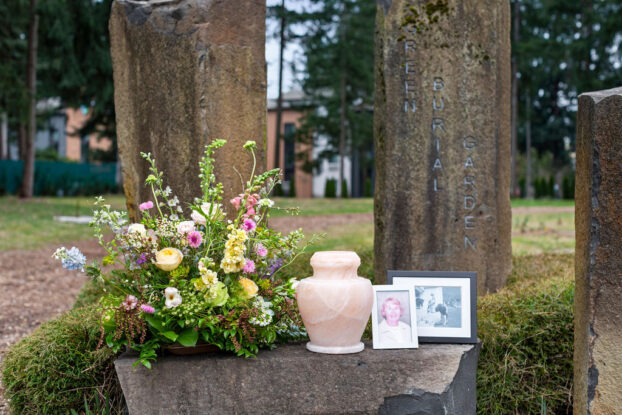
The women want to change “farewell flowers” to make them not only environmentally friendly, but beautiful, meaningful and personal. After a long life or a tragic death, one should be laid to rest with beauty – and the flowers should do no harm.
They are on a mission to raise awareness about this topic, first, with consumers, florists and the funeral industry and second, by offering sustainable options in for clients in the Seattle area and hosting sustainable mechanics classes for florists. While the main focus will be around sympathy or farewell flowers, there’s certainly potential for making daily deliveries and event work greener.
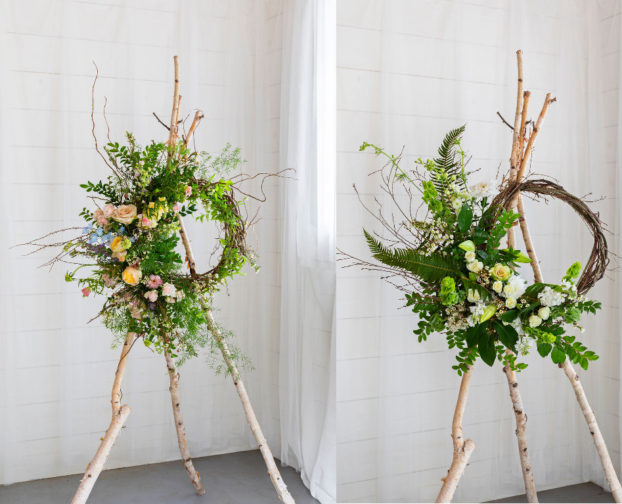
Lori and Tammy have partnered with a certified green burial cemetery, Cedar Lawns in Redmond, Washington, to start. They recently designed green farewell flowers for a photo shoot at Cedar Lawns and are preparing a brochure and a booklet as well as listing the items digitally on their respective websites.
Resources and Where to find and follow Lori and Tammy:
Follow Flori on Facebook and Instagram
Follow LORA Bloom on Facebook and Instagram
Follow First & Bloom on Facebook and Instagram
Learn more about the Green Burial Counsel
Last Friday, on Earth Day, I posted a video announcing the just-released new findings from the 2022 National Gardening Survey, which includes specific questions about cut flowers that Slow Flowers Society developed in collaboration with the National Gardening Association, which conducts the annual survey.
Click here to read more. Last year’s survey found that 58 percent of respondents said it is very or somewhat important that the flowers they purchase are locally grown. This year, that number has climbed to 65 percent — nearly 2/3rd of respondents prefer locally-grown flowers.
The attitudes about American-grown flower purchases is also trending up — from 57% of respondents in 2021 saying it’s very or somewhat important that the flowers they purchase are U.S. grown, to 61% preferring domestic flowers.
There’s much more to learn and as a bonus, we have prepared a media kit for Slow Flowers Society members to use for their own local promotions. If you are a member, you’ll find a special email in your in-box this week sharing the download details. All in all, I’m encouraged about the needle moving higher as we now have two consecutive years of consumer attitudes about Local and US-grown flowers!
Thank you to our Sponsors!
This show is brought to you by Slowflowers.com, the free, online directory to more than 880 florists, shops, and studios who design with local, seasonal and sustainable flowers and to the farms that grow those blooms. It’s the conscious choice for buying and sending flowers.
Thank you to our lead sponsor, returning for 2022, Farmgirl Flowers. Farmgirl Flowers delivers iconic burlap-wrapped bouquets and lush, abundant arrangements to customers across the U.S., supporting U.S. flower farms by purchasing more than $10 million dollars of U.S.-grown fresh and seasonal flowers and foliage annually. Discover more at farmgirlflowers.com.
Thank you to the Association of Specialty Cut Flower Growers. Formed in 1988, ASCFG was created to educate, unite, and support commercial cut flower growers. It mission is to help growers produce high-quality floral material, and to foster and promote the local availability of that product. Learn more at ascfg.org.
Thank you to Store It Cold, creators of the revolutionary CoolBot, a popular solution for flower farmers, studio florists and farmer-florists. Save $1000s when you build your own walk-in cooler with the CoolBot and an air conditioner. Don’t have time to build your own? They also have turnkey units available. Learn more at storeitcold.com.
Thank you to Flowerfarm.com, a leading wholesale flower distributor that sources from carefully-selected flower farms to offer high-performing fresh flowers sent directly from the farm straight to you. You can shop by flower and by country of origin at flowerfarm.com. Find flowers and foliage from California, Florida, Oregon and Washington by using the “Origin” selection tool in your search. It’s smarter sourcing. Learn more at flowerfarm.com.
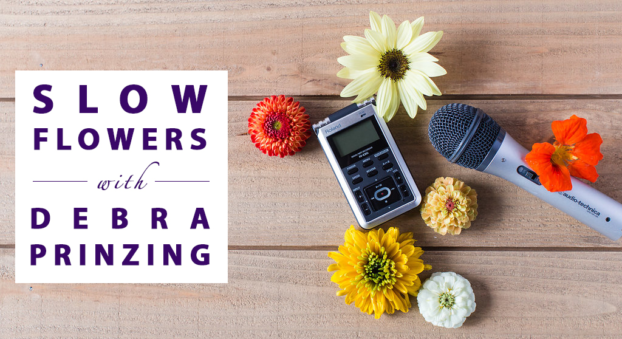
Thanks so much for joining us today! The Slow Flowers Podcast is a member-supported endeavor, downloaded more than 842,000 times by listeners like you. Thank you for listening, commenting and sharing – it means so much. As our movement gains more supporters and more passionate participants who believe in the importance of our domestic cut flower industry, the momentum is contagious. I know you feel it, too.
If you’re new to our weekly Show and our long-running Podcast, check out all of our resources at Slow Flowers Society.com and consider making a donation to sustain Slow Flowers’ ongoing advocacy, education and outreach activities. You can find the donate button at slowflowerspodcast.com.
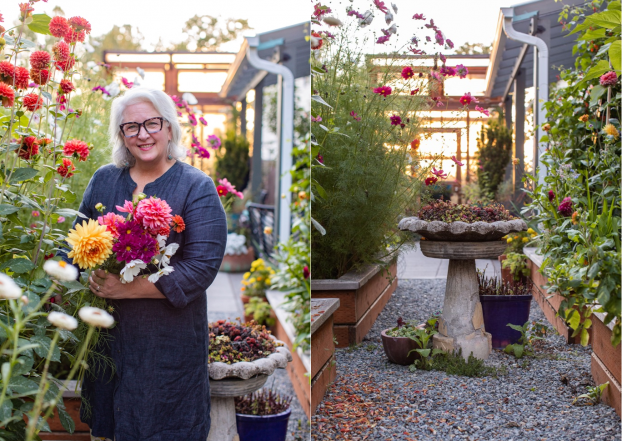
I’m Debra Prinzing, host and producer of the Slow Flowers Show & Podcast. The Slow Flowers Podcast is engineered and edited by Andrew Brenlan. The content and opinions expressed here are either mine alone or those of my guests alone, independent of any podcast sponsor or other person, company or organization. Next week, you’re invited to join me in putting more Slow Flowers on the table, one stem, one vase at a time.
Music credits:
Homegrown; Sage the Hunter; Gaena
by Blue Dot Sessions
http://www.sessions.blue
Lovely
by Tryad
http://tryad.bandcamp.com/album/instrumentals
http://creativecommons.org/licenses/by-sa/3.0/
In The Field
by:
audionautix.com










